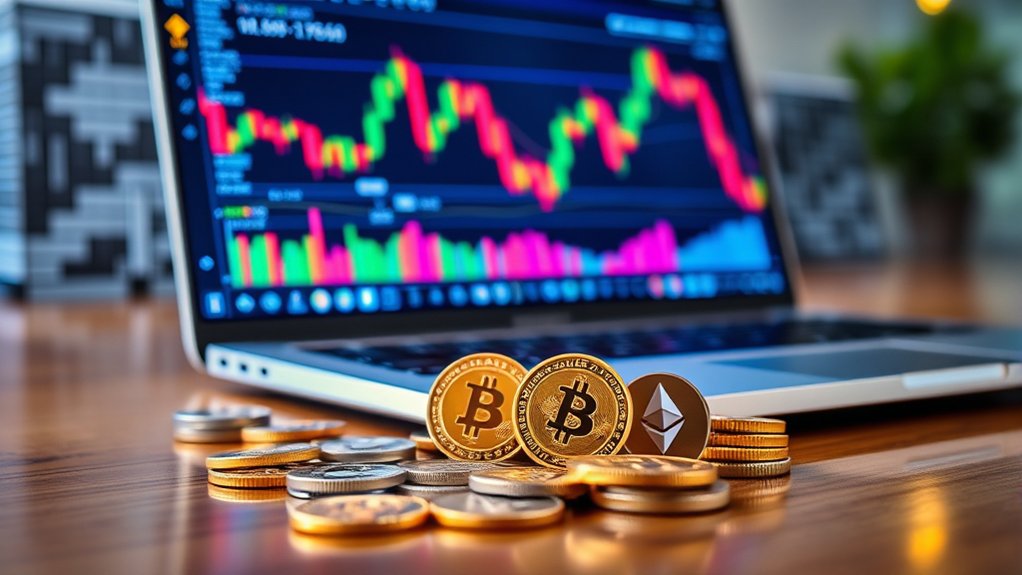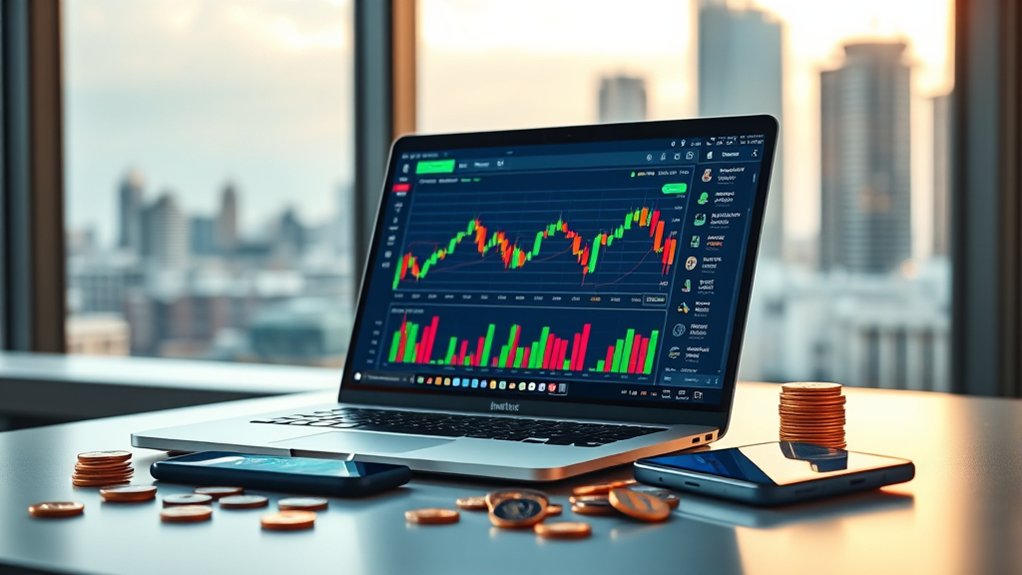Crypto exchanges are like online casinos for digital currencies. They let users trade Bitcoin, Ethereum, and more for good old cash—if you can figure out the rules of the game. Centralized exchanges offer speed but come with risks. Decentralized options offer safety but can be a maze. Setting up an account involves verification and deposits, which can feel tedious. Security is a big deal, with measures like multi-factor authentication and encryption. Curious how it all works? There’s more to uncover.

In a world where digital currencies are the new gold rush, crypto exchanges have become the bustling marketplaces of the virtual age. These platforms let users trade cryptocurrencies—think Bitcoin or Ethereum—for good old-fashioned cash, like the U.S. dollar or euro. It sounds simple, right? Well, it can be. But it’s also a bit like trying to navigate a maze blindfolded.
Crypto exchanges are online hubs, similar to stock exchanges but tailored for digital assets. They come in various flavors. Centralized exchanges (CEXs) are like the fast food joints of crypto—quick and easy, but they have a single point of failure. Secure authentication systems are crucial in mitigating risks associated with these vulnerabilities. Additionally, CEXs often provide high liquidity due to significant trading volumes, making it easier for users to execute trades quickly.
Decentralized exchanges (DEXs) offer a more rebellious spirit, allowing users to trade without central control. But they can be a bit of a ghost town when it comes to liquidity. Hybrid exchanges aim to have it both ways, blending features of CEXs and DEXs. Then there are peer-to-peer exchanges, where you can trade directly with others—no middleman, no fuss.
Setting up an account usually involves jumping through some hoops, like identity verification. Yay, bureaucracy! After that, users deposit some cash or crypto to start trading. The exchange matches buy and sell orders like a dating app for coins, making transactions happen.
But let’s not forget security—because, in this digital Wild West, keeping one’s assets safe is essential. Most exchanges boast multi-factor authentication and encryption to keep the bad guys out. They even store most assets offline—goodbye hackers!
Of course, compliance is the name of the game. Know Your Customer (KYC) and Anti-Money Laundering (AML) regulations are here to keep things “legit.” Exchanges monitor transactions like hawks, making sure nothing sketchy slips through.
It’s a brave new world, but with the right knowledge, users can navigate these crypto exchanges like pros.
Frequently Asked Questions
How Do I Choose the Best Crypto Exchange for Me?
Choosing the best crypto exchange? It’s a maze.
First, check security—cold storage and 2FA are non-negotiable.
Next, reputation matters. Research past hacks and customer service.
Fees? Don’t get gouged. Look for liquidity too. You want smooth sailing, not choppy waters.
And, if you’re into wild trading options, make sure they offer what you need.
In the end, don’t be that person who skips the research—be smart, or prepare for chaos!
What Security Measures Should I Look for in an Exchange?
When choosing a crypto exchange, security is non-negotiable.
Look for multi-factor authentication—yes, that means more than just a password.
Cold wallet storage? Crucial! You want your assets offline, not floating in the digital abyss.
Regular security audits? They better have those.
And let’s not forget KYC and AML practices to keep the bad guys at bay.
Transparency matters too; proof of reserves is a must.
Otherwise, good luck trusting your money!
Are There Fees Associated With Using Crypto Exchanges?
Yes, there are fees galore on crypto exchanges.
Trading fees? Yep, they’re everywhere.
Deposit fees? Sometimes, if you’re unlucky.
Withdrawal fees? Don’t get too excited; they can spike with network traffic.
Listing new coins? You’ll pay up for that too.
And let’s not forget margin trading fees—because borrowing money is never free.
Fees vary wildly from one exchange to another, so good luck picking the right one without losing your shirt!
Can I Use a Crypto Exchange Without a Bank Account?
Sure, a crypto exchange without a bank account? Totally doable.
Decentralized exchanges let you trade straight from your wallet. Prepaid cards, PayPal, and peer-to-peer platforms like LocalBitcoins? They’ve got you covered.
Even Bitcoin ATMs are in the mix. No bank account? No problem.
Of course, you might encounter some sketchy characters on those P2P sites. Just keep your wits about you—this isn’t a walk in the park, folks.
How Do I Cash Out My Crypto Profits?
Cashing out crypto profits? Easy, right? Wrong.
You’ve got centralized exchanges like Coinbase and Binance, but watch those fees—they love to take a cut.
Want instant cash? Bitcoin ATMs are an option, but those fees? Ouch.
Peer-to-peer trading can save you some hassle, though. Just remember, selling isn’t free.
Taxes are coming for those gains. So, choose your method wisely, or your profits might vanish faster than your patience!





